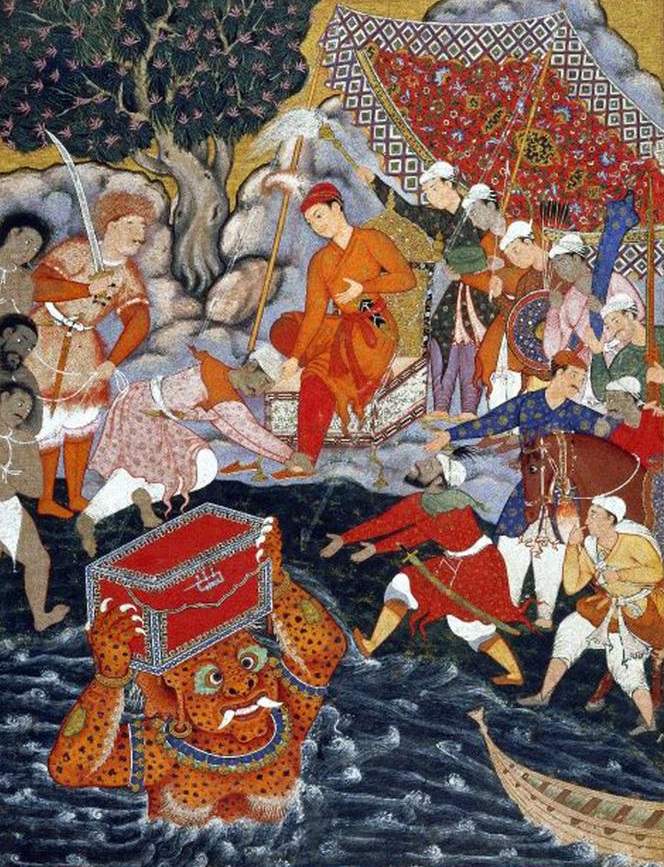Written by: Nida Qasim
Posted on: October 20, 2021 |  | 中文
| 中文
(Left) Hammad Hassan Rind, the author of the novel, 'Four Dervishes' and the book title of Hammad Rind's 'Four Dervishes' (Right)
Hammad Rind was born in Punjab, Pakistan, where he lived until his late teens, after which he moved to the United Kingdom for education, and where he has stayed on ever since. By profession, a language researcher for a financial firm in Wales, Rind is a polyglot by choice, having command over 8 languages, and always learning more. Many of these languages, which include Urdu, Punjabi, Saraiki, Persian, Turkish, Hindi, Arabic, (along with French, Italian and Spanish), are pivotal to the cultural and linguistic context of Rind’s debut novel, Four Dervishes.
After many years of writing, drafting, re-drafting, and undergoing publishing, The Four Dervishes has officially been published by ‘Seren Books’, a publishing house based in Wales, earlier this month. In the ‘Four Dervishes’, Rind merges the eastern classical genre of dastan (storytelling) with the genre of magical realism popular in Latin America, while using the literary device of satire throughout.
The title of the book is borrowed from ‘Qissa-ye Chahār Darvēsh’ (The Tale of the Four Dervishes), a dastan by a renowned 13th century Indo-Persian Sufi poet, writer and musician, Amir Khusro. A dastan (Persian: dâstân) is an ornate form of oral history from Central Asia, Iran, Turkey and Azerbaijan.
Inspired by Amir Khusro, the story of the four dervishes is set in a fictional state (‘Saqia’) located somewhere between the Indian subcontinent and Iran. The four dervishes gather in a cemetery where each shares the story of his life through the rich tradition of oral storytelling.

Painting 'Hamzanama' by Mughal Emperor Akbar, narrating the story of Arghan Dev, signifies Dastangoi (credits to Brooklyn Museum Collection)
While in conversation with Rind, he shared that the themes employed in the stories are themselves quite contemporary, and are inspired by the observations that he made during the time he lived in Pakistan. However, Rind emphasized that while some of the themes and social issues embedded within the novel might be inspired from Pakistan, that does not mean that they are also not universal. Rind said that humor is very important to him, and that for people to laugh is absolutely necessary. Therefore, while he addresses various deeply rooted social problems such as women’s issues, religious bigotry, class divisions and the concept of honor in his novel, he does so in a manner that is not preachy, but is satirical and thought provoking.
The Four Dervishes is a fantastical novel, filled with an array of rich linguistic, poetic, and cultural gems from various parts of the world, and one that will make you laugh, and yet also reflect, which is in my opinion, the best combination. To this effect, I would like to share a passage that Rind read out for me in the interview. It sounds even better when you hear him read in multiple languages with perfect pronunciation, but even without that it’s worth reading;
"Brevity or fragility of life is the most common theme of the religious dictums or the poetic verses carved on these epitaphs. For some life is but a span, for some a dream, a bubble, or a cookie.
ہستی اپنی حباب کی سی ہے
Hasti apni habāb ki si hai:
‘A bubble is our life’;
ما همه فانی و بقا بس تراست
Mâ hama fâni o baqâ bas Tu-râst:
‘We are all mortal, only You will remain’;
جھان افسانه درٓالدانما باقی
cihân afsanedir aldanma Bâki:
‘The world is a fable. O Bâki, do not be deceived’;
; انگار که هر چه نیست در عالم هست
Ingâr ke har-che nēst dar âlam hast:
‘As if whatever in this world exists, doesn’t exist’.
The Four Dervishes is available on the Seren Book’s website, with the option to get it delivered internationally, at https://www.serenbooks.com/productdisplay/four-dervishes. Rind also has plans of turning it into an eBook, and eventually getting it to bookstores in Pakistan, and also hopes to translate his work into Urdu.

Hammad Rind at the book signing event of his debut novel 'Four Dervishes' in Wales. (Picture taken from Rind's Facebook)
Many prominent writers have praised the writer for his brilliant debut novel. Indian fiction writer Tabish Khair comments: “Four Dervishes is a fascinating adaptation of a medieval classic spun into a satirical and a magical realist novel about our times.” Contemporary English writer Jon Gower claims that the Four Dervishes is “easily the most remarkable work of fiction to come out of Wales in a thousand moons”.
You may also like: